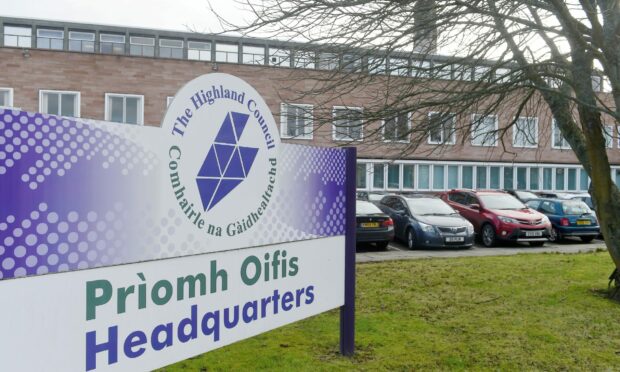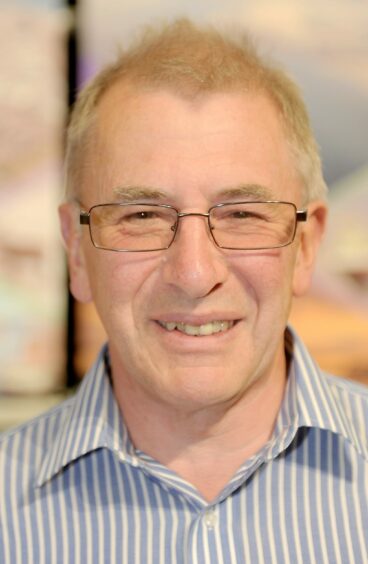Does the Community Empowerment Act do what it says on the tin? As community ownership flounders, Highland Council is changing things up.
The figures are stark. Out of 163 expressions of interest, only 14 community ownership applications have been completed in the Highlands.
Today, members of the communities and place committee agreed a raft of changes to boost the scheme. Some of these sidestep the act itself.
So what was agreed?
The act isn’t always necessary
Interestingly, the council is looking at sidestepping the Community Empowerment Act altogether.
In some cases, it seems the act actually makes the process more complex.
This is because the act is stringent on which community bodies can apply, and the timescales for turnaround.
The level of red tape applies regardless of the type of community group, whether they want to lease or own the asset, and the value of the asset.
The council is proposing to use its own property disposal regulations, in a bid to streamline the process.
However, councillor Andrew Jarvie suggested that moving to what he called a ‘non-prescribed timeframe’ may not produce better or faster results.
Head of policy Alison Clark said this is a fair point, but performance will still be monitored.
“How do we know if we’re making a difference?” she said. “As a team, we will still want to monitor requests coming in, and we will still need to report annually to members and to the Scottish Government.”
Stronger process, earlier on
One of the challenges highlighted in the report is that basic investigations such as title deed searches don’t take place until quite late in the process.
This means that a group might express interest in taking on land, only to hit problems further down the line.
For instance, Highland Council might not own all of the land, or there may be planning conditions attached.
The council’s solution is to ask groups to do more work, up front. At the expression of interest stage, applicants will need to define their proposal, the asset and the community benefits they believe they can deliver.
However, they will also need to suggest a purchase price and do a full title deed investigation, costing around £500.
The council believes this will root out any problems early on.
The big question is: will it simply result in fewer expressions of interest, as community groups struggle with the workload?
In an accompanying report to today’s meeting, lack of volunteers and resources was a key problem highlighted to the council’s new community support co-ordinators.
Can voluntary groups cope with these enhanced early checks?
Community ownership is a benefit
Under the Community Empowerment Act, community groups wanting to take on a public asset need to clearly outline what additional benefit they will deliver.
This concept of additionality trips many groups up – they must demonstrate that having this asset will provide something new to the area.
Under the new process, the council will recognise community ownership as a benefit in its own right. The council hopes this will make it easier for groups to make their case.
Last November, community groups in Lochinver celebrated taking ownership of their Mission Centre.
They said owning the building gave them local control to develop in a way that benefited the community.
Simplified process for assets under £10,000
The report makes a standout point – how many hoops are community groups willing to jump through to purchase a council toilet for £5,000?
One of the key issues is the economic development burden.
The economic development burden is a legal device attached to community asset transfers.
It aims to protect the council if it’s selling an asset at a discount. It also looks to ensure that buildings sold to the community, remain with the community.
However, the timeframe for this burden is an eye-watering 25 years.
At the same time, many funders won’t consider burdens beyond five years.
In response, the council has agreed that the burden will not apply to assets costing less than £10,000.
If an asset has heritage value, the burden could apply. Alternatively, the council could ask for first refusal if the asset goes back up for sale in future.
Loans, support and resources
The council has also agreed a range of measures to support community groups.
It will set up a community loan fund to provide flexible funding for asset transfers.
Ten community support co-ordinators are working across Highland, and they have already spoken to 661 groups since they took up post in August. Finally, a bank of online resources and template heads of terms will be created to offer further support.
What did members say?
Members generally supported the plans.
However, councillor Andrew Jarvie pointed out that any new process would still need to be very carefully monitored and councillor Craig Fraser urged council to ensure that groups know the true condition of any historic building they plan to take on.
They are doing the council a huge favour taking on these derelict buildings, which are falling to bits.”
Councillor Richard Gale has personal experience of the community ownership process in Highland. Mr Gale said this review is desperately needed.
“From personal experience, the process of taking on the lease was really difficult. This was exacerbated by the legal team imposing ridiculous and unnecessary restrictions. This resulted in a legal bill costing thousands of pounds to the charity. They are doing the council a huge favour taking on these derelict buildings, which are falling to bits.
He concluded: “We need the legal team to start working with the community – not against it – and a long hard look at this process is really important.


